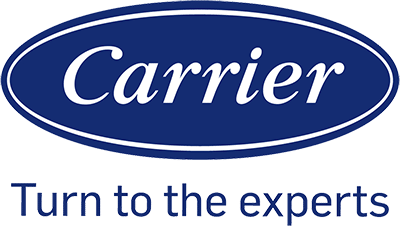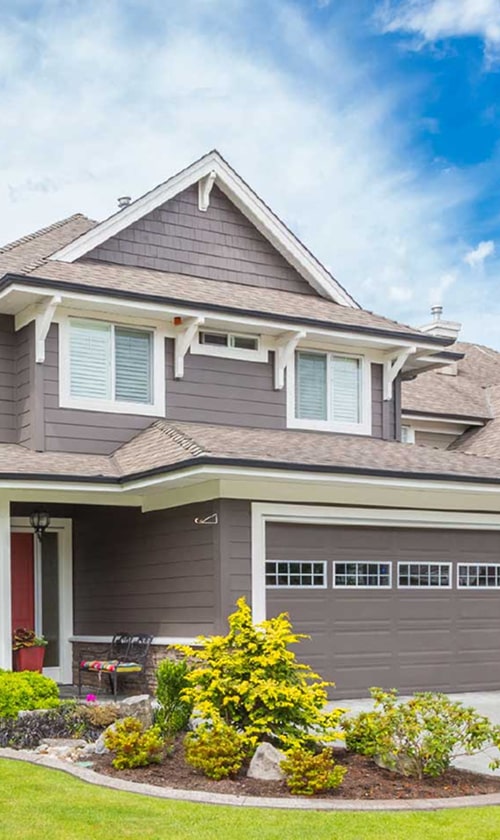Understanding Air Conditioning Filter Replacement
In maintaining a healthy HVAC system, recognizing the need for and performing timely air conditioning filter replacements is crucial.
Importance of Regular Maintenance
Regular maintenance of an air conditioning system is imperative to ensuring its longevity and efficiency. Air filters are a central component in this process. They trap pollutants and particles, which can adversely affect indoor air quality. By conducting regular maintenance, we help prevent these contaminants from circulating back into our living spaces and potentially causing health issues. Well-maintained filters also contribute to the optimal function of the entire system, helping to maintain its lifespan.
- Key benefits of routine filter checks and replacement:
- Improved air quality by reducing pollutants.
- Enhanced system efficiency, leading to energy savings.
- Prolonging of the HVAC system’s lifespan.
Identifying When a Filter Needs Replacement
It’s essential for us to identify when an air filter requires replacement to maintain the system’s health. A filter should typically be changed every 30 to 90 days, but this can vary based on factors such as usage intensity, type of filter, and exposure to dust and pets. Signs that indicate a filter needs changing include:
- Visual inspection: Accumulation of dirt and debris on the filter surface.
- Reduced airflow: The system struggles to circulate air efficiently.
- Increased energy bills: A clogged filter may force the system to work harder, leading to higher costs.
Remember, timely air filter replacement is a straightforward task that significantly impacts the performance and quality of your HVAC system.
DIY Filter Replacement Process

Replacing your air filter is a straightforward DIY task that can save time and money while giving a sense of accomplishment. With the right knowledge and materials, immediate action can be taken to maintain your system without needing specialized expertise.
Steps for Replacing Your Air Filter
- Turn Off Your HVAC System: Safety first—ensure the system is powered down.
- Locate Your Air Filter: Find the filter slot, typically located in the return air duct or blower compartment.
- Remove the Old Filter: Slide it out carefully, checking for any specific housing clips or seals.
- Insert the New Filter: Pay attention to airflow arrows on the filter’s frame—they should point towards the blower.
- Secure the Filter: If your system has housing clips or a faceplate, replace them now.
- Turn the HVAC System On: Restore power and check for any unusual noises.
Selecting the Right Filter for Your System
- Filter Size: Be sure to measure or confirm the existing filter’s size—length, width, and thickness—to ensure a proper fit.
- MERV Rating: Higher MERV ratings can filter finer particles. Choose based on your needs and system capabilities.
- Filter Type:
- Pleated Filters: These are cost-effective and efficient for most homes.
- HEPA Filters: If you require high filtration due to allergies or respiratory issues, consider a HEPA filter.
Common Mistakes to Avoid in DIY
- Ignoring Filter Orientation: Airflow direction matters. Always double-check this before installation.
- Neglecting Regular Replacement: Timely filter changes are crucial; waiting too long can impair air quality and system function.
- Using Wrong Filter Size: A mismatched filter can damage the system or reduce efficiency. Always use the correct size.
- Overlooking System Specifications: Not all HVAC systems are compatible with all filter types, such as HEPA filters, which might restrict airflow in some systems. Consult your system’s manual.
- Forgetting to Clean Condenser Coils: While replacing the filter, take a moment to inspect and, if necessary, clean the condenser coils to maintain system efficiency.
Pros and Cons of Professional Filter Replacement

When contemplating filter replacement for air conditioning systems, it’s important to weigh the advantages and disadvantages of professional involvement. Taking into account factors such as expertise and warranty, let’s examine the intricate balance of costs and benefits.
Advantages of Hiring a Pro
Expertise and Safety: Engaging a professional ensures that individuals with specialized training are handling your HVAC system. Technicians bring a depth of knowledge that allows for precise installation and troubleshooting, leading to fewer future complications. They’re also equipped to navigate safety considerations, which can be particularly critical in older systems or those with complex configurations.
Convenience and Warranty: Outsourced maintenance to an HVAC professional offers the convenience of not having to deal with the chore yourself. This can be especially beneficial for those with busy schedules or limited physical ability. Furthermore, many professionals provide warranties for their work, offering peace of mind and potentially saving money on future HVAC repairs.
Understanding the Costs and Benefits
Cost-Effectiveness: Hiring a pro can yield long-term cost savings through high-quality work that mitigates the need for frequent replacements or repairs. However, upfront expenses are typically higher than doing it yourself. A professional filter replacement service can include the cost of the filter itself, the service fee, and any additional HVAC system checks.
Flexibility: While scheduling with a professional may seem limiting compared to the immediate nature of DIY, it actually introduces a structured maintenance routine. This predictable scheduling aids in longevity and performance of air conditioning systems, potentially offsetting the initial higher cost with consistent functionality and energy efficiency.
Financial Considerations

When evaluating the financial aspects of replacing an air conditioning filter, we must consider the initial costs and the potential long-term savings and efficiencies. Our choices affect not only our immediate finances but also the future expenses associated with our HVAC systems.
Cost Comparison Between DIY and Professional
- DIY Costs:
- Cost of filter: $15-$50 depending on size and type
- Tools (if not already owned): Up to $20
- Time investment: 30 minutes to 1 hour
- Professional Costs:
- Service visit fee: $50-$100
- Cost of filter: Often marked up 5%-15%
- Labor for replacement: $40-$150
- Time efficiency: Usually takes less than an hour
Choosing to replace your AC filter by yourself can be a cost-effective decision, specifically for those familiar with their HVAC system. On the other hand, professional installation ensures that the job is done correctly, which may involve additional expenses.
Long-Term Savings and Efficiencies
- Maintenance and Repairs:
- Regular DIY replacement: Decreases the likelihood of costly repairs.
- Professional maintenance: May include comprehensive system checks beyond filter replacement.
- Efficiency:
- A clean filter: Improves efficiency by up to 15%, leading to cost savings on energy bills.
- Correct installation: Ensures maximal system efficiency, which can be more reliably achieved by a professional.
In the long run, our routine maintenance, including AC filter replacement, can yield significant cost savings. A well-maintained system requires fewer repairs and operates more efficiently, which translates into lower energy bills and extended equipment life. Whether we replace the filter ourselves or hire a professional, keeping our HVAC system’s efficiency in mind is crucial.
Health and Safety Implications
Proper air conditioning filter replacement is crucial for maintaining indoor air quality and ensuring the safety of those performing the replacement. We’ll examine how new filters can contribute to allergen reduction and the specific safety measures needed during the replacement process.
Air Quality and Allergen Reduction
Indoor Air Quality: We understand that the primary function of HVAC filters is to improve the air quality inside your home by trapping pollutants and allergens. A clean and efficient new filter is more effective at capturing these particles, thereby contributing to better air quality.
- Allergens: Old filters can become saturated with dust mites, pollen, and other allergens over time, reducing their effectiveness.
- Health Concerns: Poor indoor air quality has been linked to health issues such as asthma and allergies. Regularly replacing your AC filter can mitigate these risks.
New vs. Old Filters:
| Aspect | New Filter Benefits | Old Filter Downsides |
|---|---|---|
| Air Quality | Enhances air flow and filtration. | Leads to the recirculation of dust and allergens. |
| Functionality | Ensures the HVAC system operates at peak efficiency. | Can strain the motor and compressor, risking system failure. |
| Health Concerns | Reduces potential triggers for respiratory problems and allergic reactions. | Increases exposure to irritating pollutants and allergens. |
Safety Precautions During Replacement
Replacing Filters:
- Make sure the HVAC system is turned off before attempting to replace the filter. This ensures our safety from electrical hazards.
- Protective Gear: We recommend wearing gloves and a mask when handling an old, dirty filter to prevent inhaling trapped particles.
AC Replacement Safety:
- Motor and Compressor: Handle with care to avoid injuries related to the heavy motor or compressor parts.
- Be mindful of sharp edges within the unit to prevent cuts and scrapes during the filter exchange.
By following these focused guidelines, we safeguard both our health from allergens and pollutants, and our safety while performing the necessary maintenance of replacing HVAC filters.




